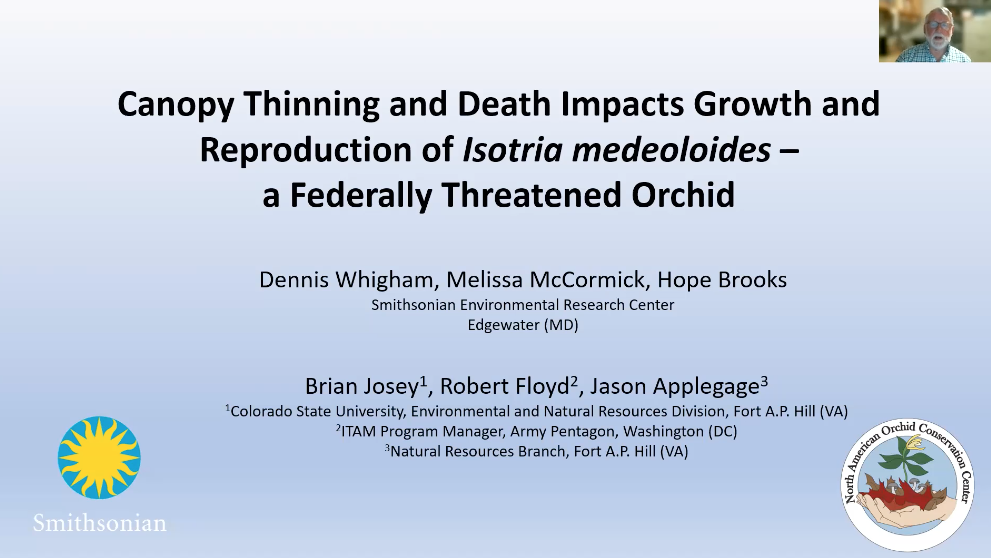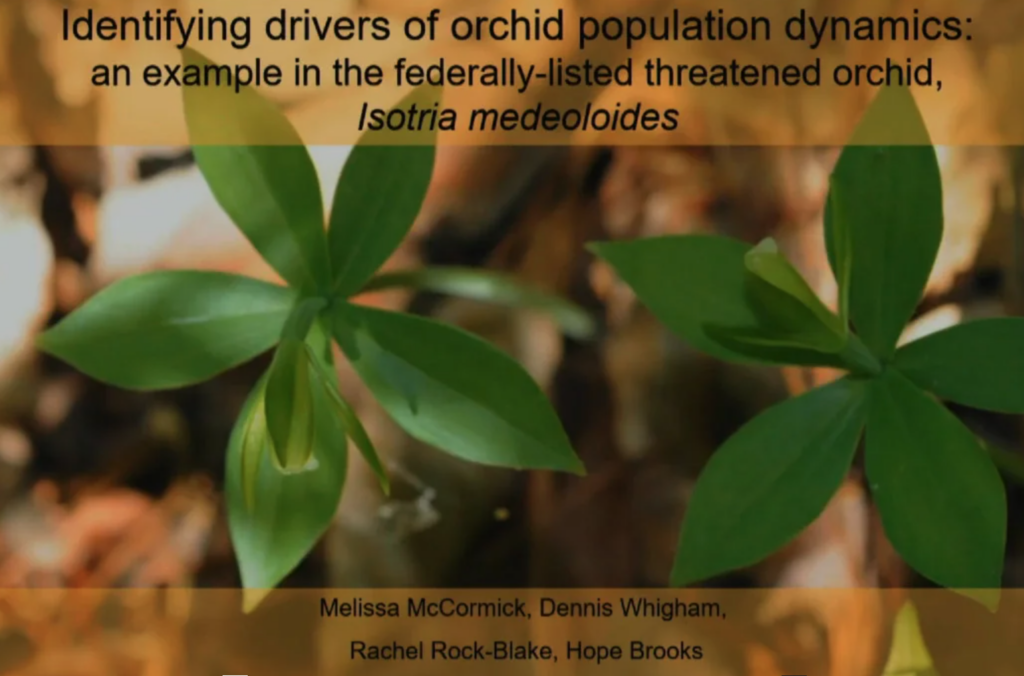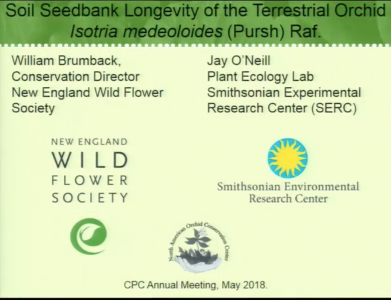
Small-whorled pogonia (Isotria medeoloides (Pursh) Raf.) is diminutive terrestrial orchid and one of the rarest in North America, with a disjunct distribution from Maine and Georgia. This orchid is associated with mid-successional forests and it is believed that late successional forests are too shady to support this species. Experiments conducted in northern US states concur […]
Read More…

Dennis Whigham, Smithsonian Environmental Research Center Long-term monitoring of Isotria medeoloides at two sites in Virginia have been combined with observations from an understory thinning experiment at one site and death of a large canopy tree at a second site. New plants emerged at both sites following increased light levels and flowering and fruit production increased. […]
Read More…

Melissa K. McCormick, Dennis F. Whigham, Rachel Rock-Blake, Hope E.A. Brooks North American Orchid Conservation Center (NAOCC) and Smithsonian Environmental Research Center (SERC) Orchids are widely threatened and endangered worldwide, but efforts to conserve and restore them has been limited by not knowing about the pollinators and fungi they need to grow and reproduce. The […]
Read More…

Seeds of terrestrial orchid species are small and essentially without food reserves, but data on the longevity in the wild of seed of most orchid species is lacking.
[…]
Read More…



